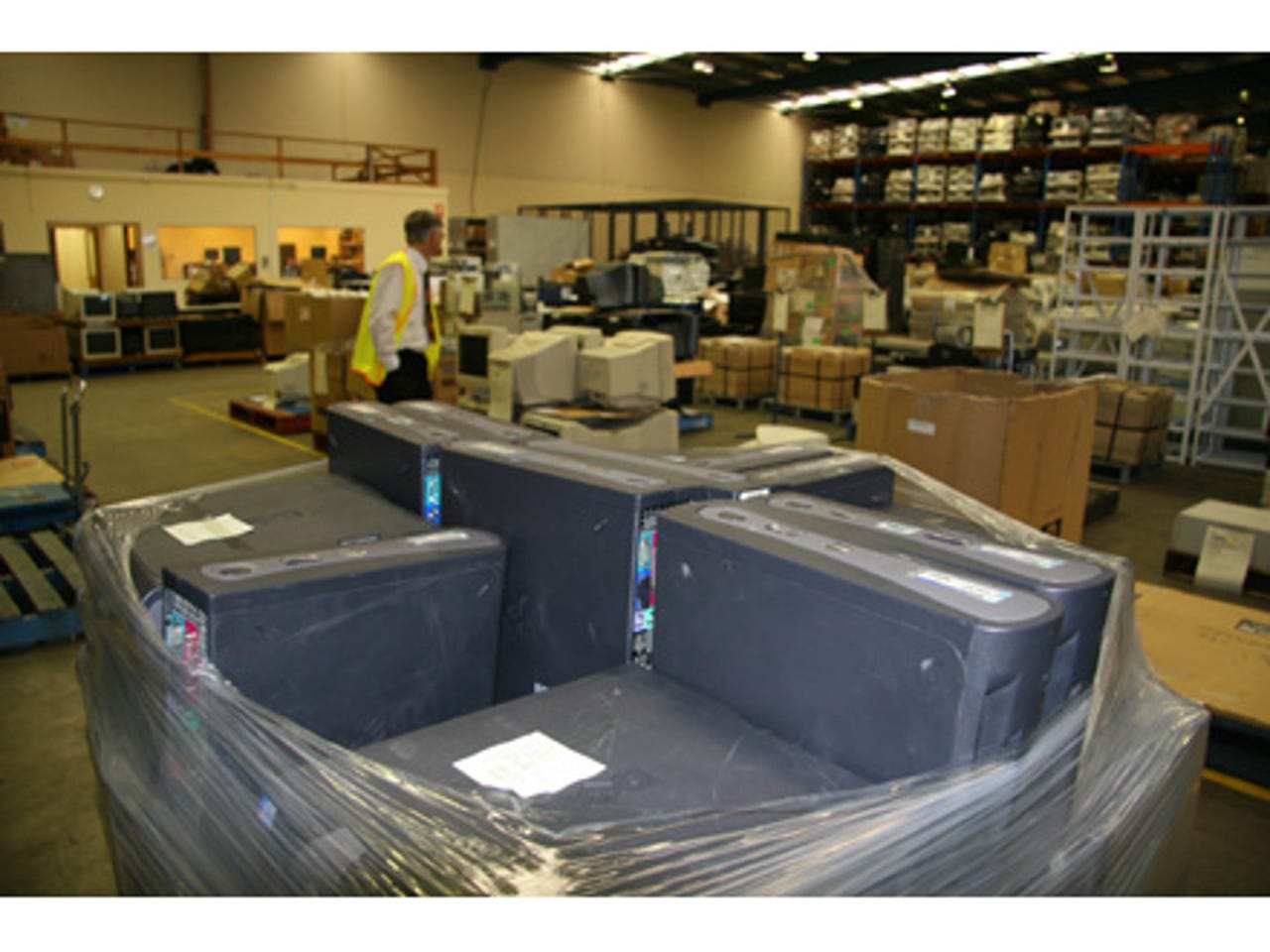Photos: A trip through Dell's recycling plant


If it works, sell it. MRI exports roughly five to 10 shipping containers of PCs or around 50,000 units to the Philippines, Vietnam and Africa.
"There's something like five million computers in storage. If we're able to access that, our industry would be flooded. It's scary," said William Le Messurier, director of Dell's recycling partner, MRI.
Paper and plastic covers are removed from CDs since they clog up extruders. However the aluminium within the CD, which lasers read from, is not a sufficient problem for plastic recyclers.
Everything has a remote these days.
This board is used to remind staff which components hold the highest salvage value.
"You call that a fence post? This is a fence post." Dell Australia's corporate communications manager, Paul McKeon, holds an oversized fence post made from plastics its recycling partner, MRI, collects from screen casings and other plastics used in computers.
Low value circuit boards which contain a mixture of metals, including gold, can attract AU$1,000 per tonne.
"If we cleaned it up, we could get more, but labour costs more than it's worth, so we'd. rather send it to circuit board recyclers," says Le Messurier.
Due to the high cost of labour, MRI's circuit boards are sent to an ISO14000 certified Korean company which extracts the gold and other precious metals from the board's circuitry. MRI's glass recycling is sent to Visy recycling to be processed in-country.
Used monitors are worthless in Australia, but attract AU$10 per unit in the Philippines, Africa and Vietnam, but surprisingly China is not the biggest destination. One thousand monitors fit on a 40-foot container and MRI exports 20 of these per year.
"We export that as second-hand products but that gate will close over the next few months because our Asian neighbours are getting more discerning in their use of technology," said MRI's Le Messurier.
Each component is separated and shelved for processing or export, depending on the value of the metals within it.